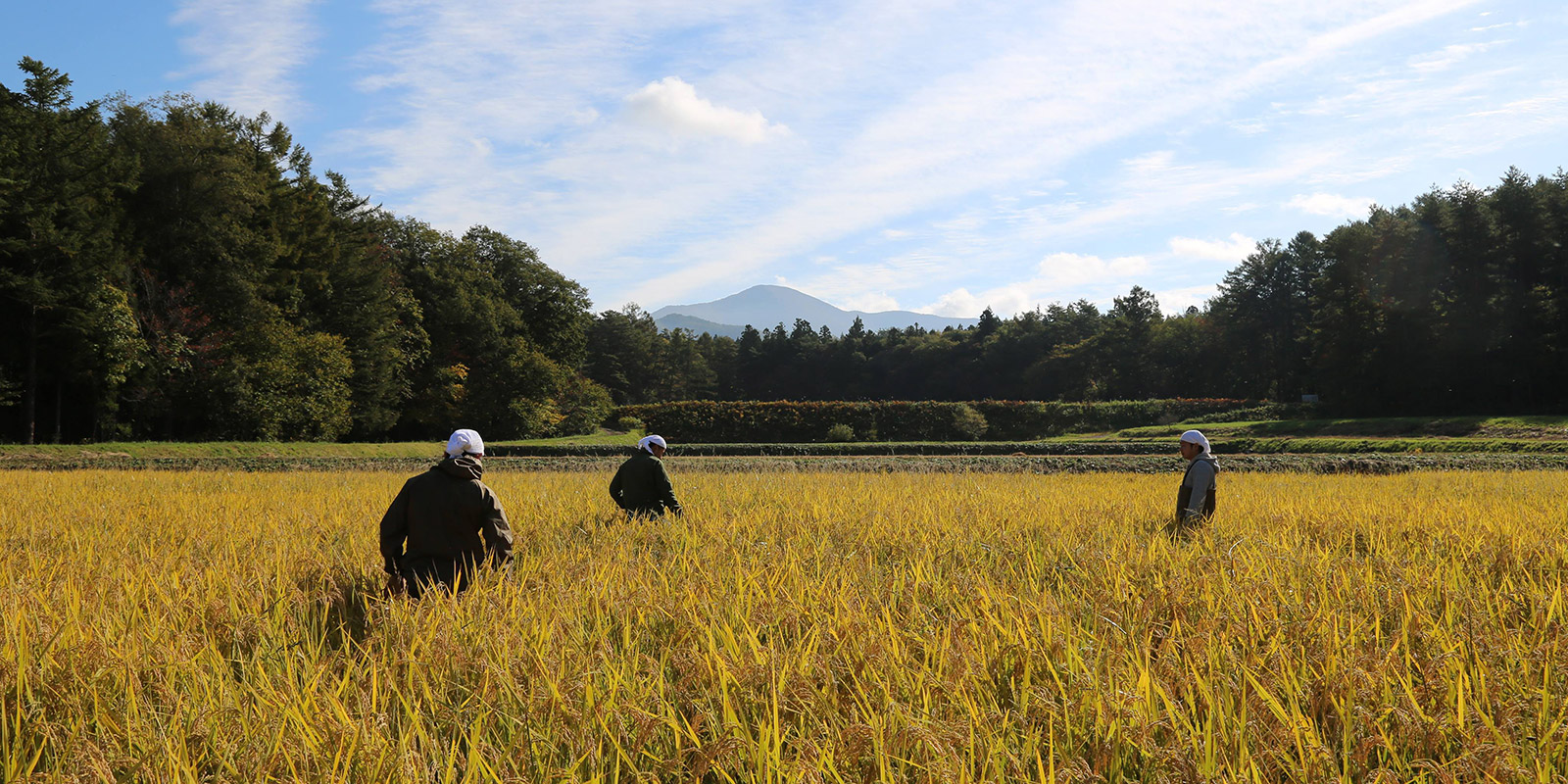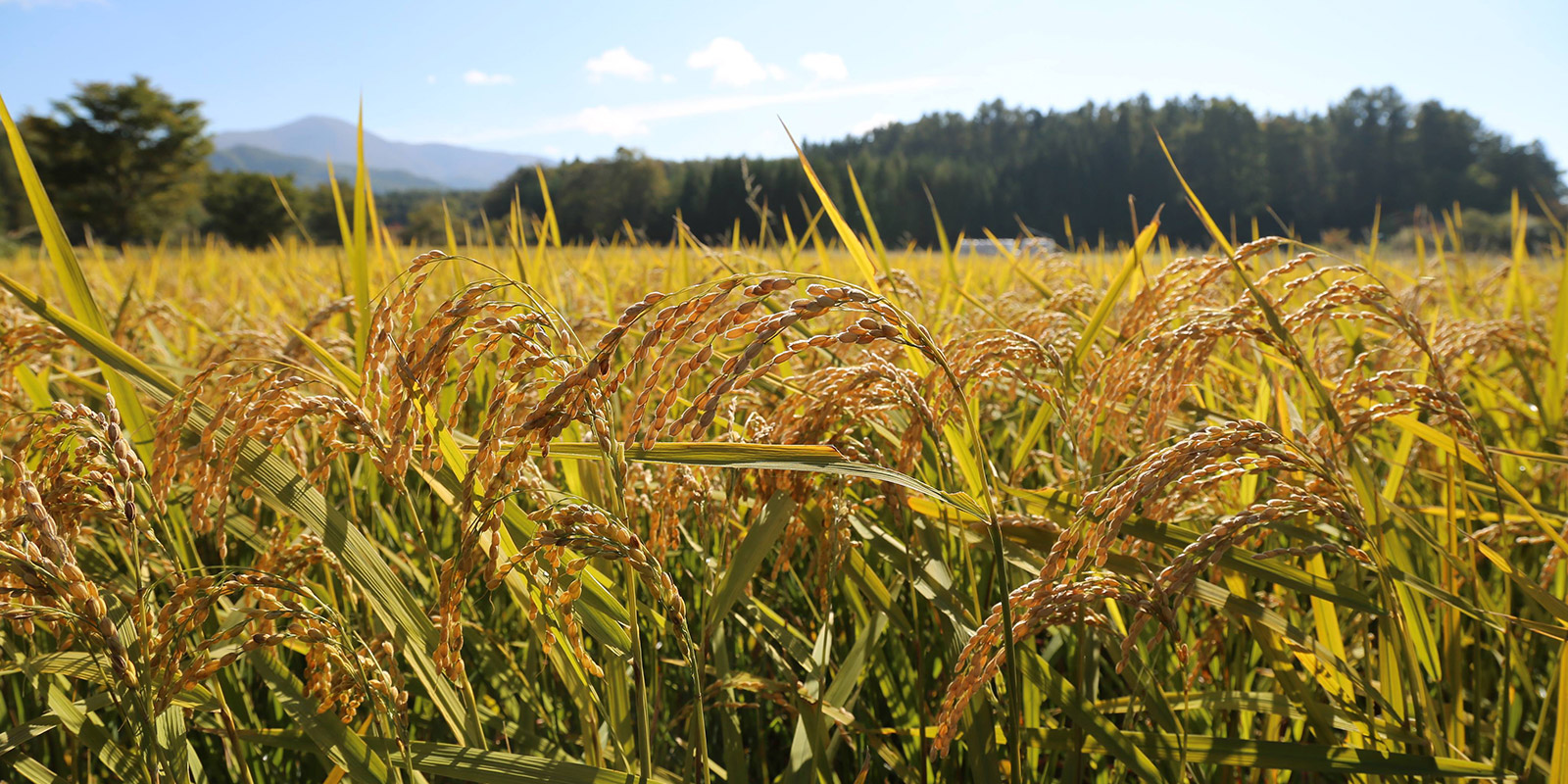It’s only natural
Farmer, chef and sake brewer Yotaro Sasaki tells Akiko Toya how he turned his fields green by going organic
When Yotaro Sasaki took over the family business he set about transforming it
Yotaro Sasaki is the fourth-generation owner of Minshuku Tono, the oldest surviving traditional farmhouse in Tono, Iwate Prefecture, which his family have been running as an inn for over a century. When Sasaki took over the family business he set about transforming it, focusing on the brewing of doburoku (unfiltered sake) with rice grown on his land using completely organic techniques. Now 41 and having perfected both his unique brew and natural farming methods, Sasaki has branched out launching a restaurant, hotel and fermented foods business—all underpinned by respect for the Earth. Here he shares the recipe of his chemical-free success.
When Yotaro Sasaki took over the family business he set about transforming it
Waste not want not
“I’ve been growing rice for 21 years and I can now make doburoku, vinegar and various other drinks from rice in a way that doesn’t produce waste. For example, I use the rice bran and other residue that’s released when pressing the rice to make non-alcoholic drinks, and sake lees [another by-product of the brewing process] to make vinegar. I’m also working with the Tokyo-based chocolate maker Minimal to develop chocolate that contains rice bran.”
 Yotaro Sasaki’s farm in Tono, Iwate Prefecture, is completely organic | Yotaro Sasaki
Yotaro Sasaki’s farm in Tono, Iwate Prefecture, is completely organic | Yotaro Sasaki
The little things matter
“When you’re producing food, you start to take notice of microorganisms and other tiny natural phenomena. I try to give these a voice by communicating the importance of the soil in food production. I hope to restore the health of the soil by reviving its natural cycle. As soon as you do some research, you’ll understand why [chemical] fertilizer and pesticides are bad. Fertilizer doesn’t decompose and remains in the soil, which leads to water pollution, while pesticides kill microbes. That cycle results in sandy farmland.”
“When you eliminate pesticides from a rice field, you notice how the surrounding environment changes”
It’s not too late to restore balance
“When you eliminate pesticides from a rice field, you notice how the surrounding environment changes. Since I’ve stopped using [chemicals], insects and reptiles have come to my paddies. Those animals then attract large wild birds. I often hear from rice farmers how sparrows cause damage, but we’re actually seeing a positive impact thanks to the larger birds. The birds’ droppings contain various seeds, which have resulted in mint and berries growing nearby. This cycle also results in a rich forest. We see lots of wild animals, and nature is coming back to life. I think what I’m doing on my paddies is my greatest contribution to the local community.”
 The rice grown on Yotaro Sasaki’s organic fields is used to produce doburoku | Yotaro Sasaki
The rice grown on Yotaro Sasaki’s organic fields is used to produce doburoku | Yotaro Sasaki
There’s more to life than survival of the fittest
“Survival of the fittest is a fundamental feature of nature but we can’t deny that humans, at the top of the food chain, are putting pressure on the planet. I’m not anti-science, I drive a car and use electricity like other people. The problem is that we’ve gone too far, and it’s really important to think of ways to give back to nature. My contribution is through rice farming and soil cultivation, which I think are very natural things to do.”
“Survival of the fittest is a fundamental feature of nature but we can’t deny that humans, at the top of the food chain, are putting pressure on the planet”